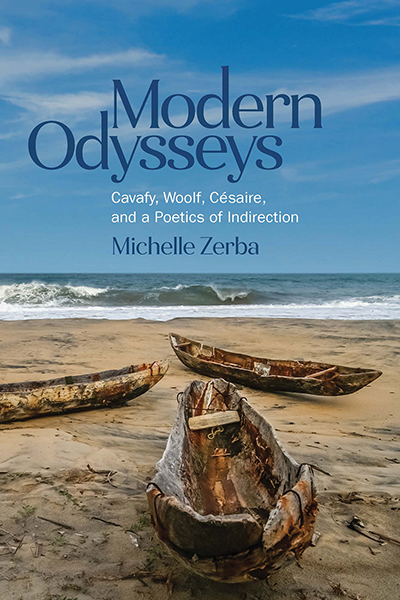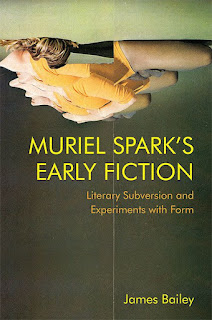BY DANIEL T. O'HARA
Temple University
Review ofEdward Allen. Modernist Invention: Media Technology and American Poetry. Cambridge University Press, 2020. 281 pp. $99.99 hardcover.
Any reader wanting to trace the parallels between modern American poetry in the first half of the twentieth century and the emergence of new media technology —telephone, radio, phonograph, and sound (musical) film documentary (such as Black Magic: A Pictorial History of The African-American in the Performing Arts [1967] and Black Nativity: Gospel on Broadway [1962])— will find Edward Allen’s Modernist Invention useful, informative, and fluent in communication and critical analysis as well as in theories of literary and cultural import. A good example is the reading of Wallace Stevens’s late poem “The Sick Man” (1950; pp.126-130). Allen parallels each poet he samples to an emergent media technology; Stevens’s media muse is the radio.
After establishing the general media climate or ecology at the time, here via a rehearsal of Stevens’s correspondence with his friends the Churches—especially the widow Barbara Church, in which the poet’s reluctant but finally full-throated love affair with the radio becomes clear— Allen reads the selected example in this specific media context. At first glance, “The Sick Man” does not automatically register as a sick man’s experience of tuning and listening to his radio during the middle of the night. Instead, the poem, as Allen cites it, does make the visible a little harder literally to see, if more imaginatively suggestive for meditation:
Bands of black men seem to be drifting in the air,
In the South, bands of thousands of black men,
Playing mouth-organs in the night, or, now, guitars.
Here in the North, late, late, there are voices of men,
Voices in chorus, singing without words, remote and deep,
Drifting choirs, long movements and turnings of sounds.
And in a bed in one room, alone, a listener
Waits for the unison of the music of the drifting bands
And the dissolving chorals . . . (Stevens qtd. in 127)
Allen fills in the most likely context as being the old ill poet listening to and tuning his radio, and first hearing drifting along the air waves bands of black men playing their harmonicas and guitars, and then men—as if being white is the full human state—sounding their wordless chorals dissolving in the air. These massive constitutive American opposite symbols form, for the sick man, “the unison of the music” he creatively imagines and eloquently articulates:
The words of winter in which these two will come together,
In the ceiling of the distant room, in which he lies,
The listener, listening in the shadows, seeing them,
Choosing out of himself, out of everything within him.
Speech for the quiet, good hail of himself, good hail, good hail,
The peaceful, blissful words, well-tuned, well-sung, well-spoken.
(Stevens qtd. in 129)
Allen resourcefully illuminates these late allusions to Stevens’s own earlier poems, themes, figures, favorite tropes—including the figure of the listener, the winter climate, the well-tuned guitar-accompanied words. Even as we see the new addition, the explicitly self-hailing practice of poetic composition that Stevens joins—and would fully exemplify as he eventually faces the ultimate quiet coming ever closer. Like his poetic father, Walt Whitman, Stevens conceives all his poems as songs of the self, ever courting and yet holding off, the final dark embrace. The only vision of unison held open yet together, at the end.
With Frost, Allen reads the long narrative dialogue “Snow” from Mountain Interval (1917). Frost stages strategically the use of the telephone, in which a couple listening to their party line discloses what they do not see, another couple’s poignant domestic crisis that Frost reveals wryly for the observant reader via this new media device . Similarly, Allen traces Marianne Moore’s engagements with recording her poetry, especially in connection with Caedmon Records after WWII. But it is the last chapter, on Langston Hughes and how his early and continuing study of cinematic techniques, especially montage, leads him not only to develop documentaries of Black musicals but also to expand the limits of lyric poetry, including his own most celebrated lyric, as in the epic late poem Montage of a Dream Deferred (1951).
Modernist Invention is most successful in integrating its media technology and American poetry halves in an inventive way every bit worthy of the title adjective modernist in this final chapter on Hughes. While entertaining the established critiques of this late experiment Montage of a Dream Deferred—its repetitive nature, its often-lame colloquial expressions, its epic ambitions overshooting the poet’s own lyrical moments of creativity—Allen instead demonstrates this poem’s self-conscious, even self-parodic intentionality, startling its creator by sudden imaginative surprises in the course of pursuing a jazz improvisational method. Allen devotes nine pages to its analysis, which is why I will conclude with an example from the end of the Hughes chapter. The brief obscure lyric “Advice to Cullud Movie Actors” ends the chapter, as its self-parodic depiction of tinsel-town Black actors’ required method of dramatic portrayal:
If you’ve got to play a native
Play a native good—
Play him like
Your Uncle Tom would.
. . . .
If you’ve got to be a Porgy
Be a Porgy in full
And give Mr. Goldwyn
Plenty of bull.
. . . .
Why I say all this
(You ought to know, son)
Is I’m just mad ‘cause
I didn’t get none (Hughes qtd. in 247-248)
Allen masterfully concludes: “It’s an unforgiving poem, but one that should leave us in no doubt that Goldwyn’s industry had got well and truly under the poet’s skin” (248). This conclusion is fitting all around.
Framing the book’s analyses is a long Introduction (pp.1-36) and a half the size Coda (pp. 249-261 entitled “Synchronicity.” Allen launches his book under the flagship 1987 paper by Raymond Williams, “When Was Modernism?” The established account of modernism in Anglo-American literary history is punctuated by sacred dates, none more important than the miraculous year 1922, when Ulysses and The Waste Land were published in book form. Modernism tends in this perspective to be represented as a post-WWI development, or better, reaction. The literary innovations of modernism are seen thereby as rather simply reactions to the catastrophe of war and its aftermath.
Williams’s point, however, is to underscore how modernism is first of all broader than any one or two national bases and also a historical happening with many different moments. In fact, as Williams suggests, modernism was a historical socio-political emergence or series of emergences not limited in time or place, except in the broadest possible terms, and not only associated with literature and the other arts, but widespread in popular forms as well as transnational, global in its impact, and associated with objects and practices we have only begun to plumb (in 1987).
Allen’s book plows in this field. But unlike the developmental logic of established cultural histories, it would bring together in synchronous fashion the art-forms, elite and popular, American and international, attached less to these elite forms and more to the popular practices and techniques, which blossom as new inventions to shape and reshape the modernist world, moment by moment. Such emergences of this universal modernist event form the ambitious horizon still beckoning, as we leave Allen’s view of Hughes in the throes of his quick-cut montages, thereby suggesting the equally fine books to come.
----
Daniel T. O’Hara, emeritus professor of English and humanities at Temple University, is the author of nine books, including Virginia Woolf and The Modern Sublime: Invisible Tribunal (Palgrave/Macmillan, 2015), and editor or co-editor of six collections, most recently Humanistic Criticism: A William V. Spanos Reader (Northwestern UP, 2015).






















